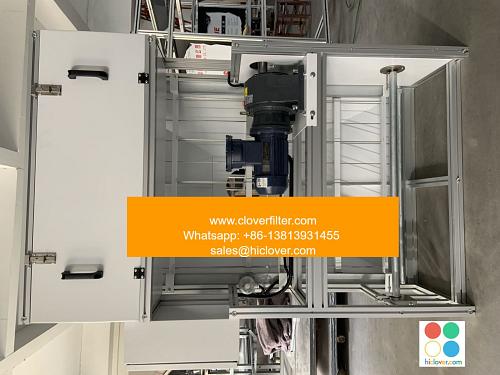Slashing Energy Consumption: Air Filter Optimization Strategies

As the world grapples with the challenges of climate change, energy efficiency has become a top priority. One often overlooked area of opportunity is air filter optimization, which can significantly reduce energy consumption in various industries. In this article, we will explore the importance of air filter optimization, highlight key strategies, and discuss its applications in sustainable building design, industrial processes, and HVAC systems.
Why Air Filter Optimization Matters
Air filters play a crucial role in maintaining indoor air quality and preventing equipment damage. However, inefficient air filters can lead to increased energy consumption, reduced system performance, and decreased equipment lifespan. A well-designed air filter optimization strategy can help minimize these negative effects, resulting in significant energy savings and reduced greenhouse gas emissions.
Key Air Filter Optimization Strategies
- Regular Maintenance: Regularly cleaning and replacing air filters can help ensure optimal performance and minimize energy waste. This is particularly important in commercial buildings and industrial facilities where air filters are subject to high levels of dust and debris.
- Filter Selection: Choosing the right air filter for the job is critical. High-efficiency particulate air (HEPA) filters and ultra-low penetration air (ULPA) filters are designed to capture small particles and contaminants, making them ideal for cleanroom applications and pharmaceutical processing.
- Filter Design: The design of the air filter itself can also impact energy consumption. Low-pressure drop filters and high-velocity filters are designed to minimize resistance and maximize airflow, reducing the energy required to push air through the filter.
- Air Filter Monitoring: Implementing an air filter monitoring system can help track filter performance and detect potential issues before they become major problems. This can be particularly useful in mission-critical facilities where downtime can have significant consequences.
Applications of Air Filter Optimization
Air filter optimization has a wide range of applications across various industries, including:
- Sustainable Building Design: Air filter optimization can play a key role in reducing energy consumption and improving indoor air quality in commercial and residential buildings.
- Industrial Processes: Air filters are used in various industrial processes, such as chemical processing, food processing, and pharmaceutical manufacturing. Optimizing air filters in these applications can help reduce energy consumption and improve process efficiency.
- HVAC Systems: Air filters are a critical component of heating, ventilation, and air conditioning (HVAC) systems. Optimizing air filters in these systems can help reduce energy consumption, improve system performance, and extend equipment lifespan.
Conclusion
Air filter optimization is a simple yet effective way to reduce energy consumption and improve indoor air quality. By implementing regular maintenance, selecting the right air filter, optimizing filter design, and monitoring filter performance, individuals and organizations can make a significant impact on energy efficiency and sustainability. As the world continues to grapple with the challenges of climate change, air filter optimization will play an increasingly important role in reducing our carbon footprint and creating a more sustainable future.
It seems like you’re ready to start a conversation or ask a question, but you haven’t provided a specific prompt yet. Could you please provide more details or clarify what you’re looking for? I’m here to help with any questions or topics you’d like to discuss!

